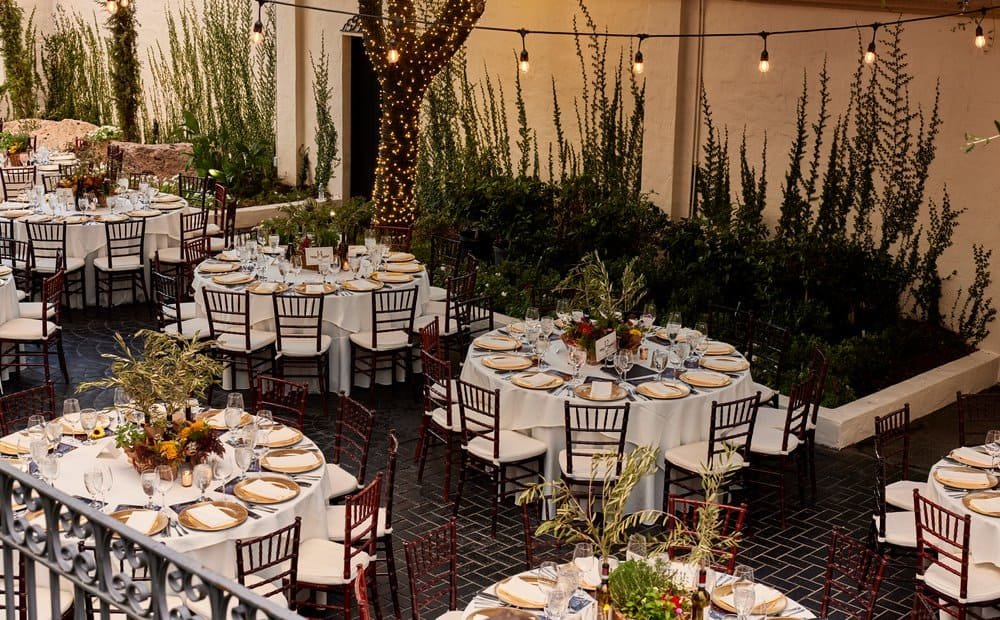Do you know the differences between event planners and event producers? How about event coordinators—Do you know what they do?
If you’re a little fuzzy on what these roles involve, don’t feel bad: You’re in good company.
Many, even those in our field, get a bit confused about who does what in the events industry. But there are important distinctions among each role that you should know about.
This article can serve as your guide. Once you have a solid understanding of what distinguishes event producers, planners, and coordinators from one another, you’ll be better able to make educated decisions about seeking their services. And, you’ll be able to fully realize the benefits of their knowledge and skills.
Planners and Producers: There Is a Difference
While most people have at least heard of event planners, few outside of the events industry are familiar with event producers. That’s ironic because planners actually are a subset of producers.
“The event planner is responsible for designing a strategy and taking care of the small details, while the event producer is responsible for using their production expertise to deliver a good experience for both the attendees and the client,” event solution provider Vario wrote in a recent blog.
As RGI Events puts it, “Event production goes above and beyond traditional event planning by combining event management with creative and technical production, focusing on the overall event experience. All producers are planners, but not all planners have the technical skills and knowledge of a producer.”
Producers often map out and manage the technical aspects of an event, from directing production staff to making sure audio-visual equipment is set up properly.
But the differences between planners and producers don’t stop there.
Planners help clients identify a purpose, vision, and budget for their events and determine what steps will be necessary to realize the client’s goals, from selecting the event location to lining up speakers.
A producer then figures out the best approach to executing those steps and does what it takes to ensure their success.
Event producer Stephanie Jayko, founder of Knock Out Productions, contrasted the role of event producers and planners during an interview with Event Planning Blueprint.
“On the event-planning side…they’re putting together what the client wants and needs and all of the little pieces into a spreadsheet, whether it’s in their mind or a real one. They’re building the road map that becomes the event.
“As a producer, we come in and work on the road map that has already been laid out for us,” Jayko continued. “We look at all of that and determine what is needed to accomplish those different things, how to build the world within each stop on that road map. We're a little more on the technical side and a little bit more on the creative side.”
Where Producers Shine
Wondering what that looks like?
Depending on the event, a producer’s responsibilities could include developing strategies for executing clients’ visions, reviewing and editing event proposals from other team members, implementing the vision of the event by hiring appropriate vendors, and managing event logistics, among other tasks.
A Closer Look at Event Planners
While event planners often are members of the teams that organize large events like those described above, they also can help with personal events, from anniversary parties to weddings.
Examples of tasks that event planners handle include meeting with clients to discuss their event’s purpose, working with clients to establish an event’s time, location, program, and cost, helping clients develop event themes, researching lodging, transportation, and services surrounding the event, coordinating with venue staff members.
And, if you enlist a planner for your wedding, they can help with such tasks as serving as your overall wedding advisor, helping you select a wedding venue, guiding you through contracts for vendors (photographers, entertainment, flowers, etc.), scheduling and attending vendor meetings, coordinating hotel rooms and transportation for your guests, providing input on wedding design and fashion, building your wedding website, mailing invitations, and tracking reservations, among other things.
What About Event Coordinators?
Basically, event coordinators do the legwork required to implement what’s been planned. They often assist event planners.
“Generally speaking, the planner makes critical decisions regarding, what, when, who, and how,” Geoff Beers wrote for The Balance Small Business. “An event coordinator, on the other hand, is responsible for making sure all of the details are executed and that each vendor shows up on time and performs appropriately.”
According to Beers, large organizations may have two coordinators for every planner, and smaller operations may have one coordinator on call for all of the event decision-makers.
“Either way, there is a typically a direct line of supervision over the coordinator position,” he wrote.
On the day of events, coordinators generally are at the venue, working as a go-between for the client, vendors, and the venue staff.
So, now you know who you can turn to for help planning your wedding or event.
The important thing to remember is whatever you have in mind—whether it’s a party, corporate gathering, charity gala, or your wedding—you can find event professionals with skills and expertise that match your needs.

